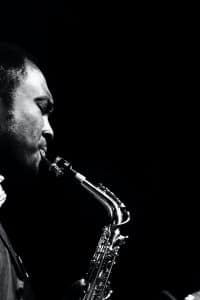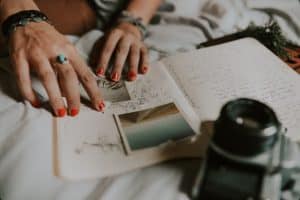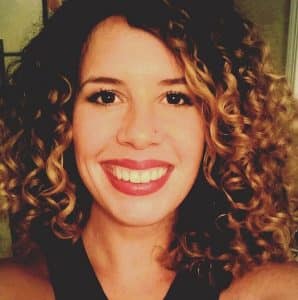
“Flow is an optimal state in which you feel totally engaged in an activity…In a state of flow, you’re neither bored nor anxious, and you don’t question your own adequacy. Hours pass without your noticing.” – Susan Cain
“Surrender is a state of living in the flow, trusting what is, and being open to serendipity and surprises.” – Judith Orloff
Between adjusting to a global pandemic that’s included a range of personal lifestyle changes – social distancing to full on quarantine, working from home or not working at all, spending more time with loved ones or not seeing loved ones enough, setting up a home-school program for your kids, getting pregnant or having babies with less community support or perhaps putting your wedding or family plan on hold, having less alone time or having a world of time in isolation, financial change, etc., – the list goes on and on. All of this while being in the middle of huge political, social, racial, and gender-based movements! We have had quite the season. Quite the season indeed.
I’ve heard some clients, colleagues, friends, and family speak of this time as one of vast awakening – an opportunity to reassess our values and prioritize what’s truly important, while others see it as a time of true crisis in all sense of the word. And yet through the trials and tribulations, people and society is indeed shifting, and not necessarily in a bad way. I’ve heard clients and friends speak to things like: self-care, spiritual practice, connecting with family, practicing compassion, deconstructing racism, incorporating activism, doing meaningful work, and stability to name a few core values newly incorporated or prioritized during this time.
To integrate this change more fully, it can be helpful to go beyond simply talking about it. By tapping into our creative flow, we enter into a state of mind that is free of self-judgement, critique, or perfectionism and we are able to make something that often, and surprisingly so, more accurately defines our experience. Dubbed “flow” in 1975 by Hungarian-American psychologist, Mihaly Csikszentmihalyi (watch his Ted Talk here), after his experience as a child in Europe amidst World War II, he described it as:

“being completely involved in an activity for its own sake. The ego falls away. Time flies. Every action, movement and thought follows inevitably from the previous one, like playing jazz. Your whole being is involved…”
Csikszentmihalyi and his colleague Nakamura (2001) came up with some optimal conditions for entering flow state, briefly described below (Houston, 2020):
- Challenge-Skills Balance: the task at hand is not too demanding nor too easy. There is a sense of competence, enthusiasm, and enjoyment in the task.
- Clear Goals and Unambiguous Feedback: the goal is defined as finishing the task and the feedback comes from the activity itself, not from another external source.
- Loss of Self-Consciousness: we are so involved in the activity at hand, critiquing is non-existent.
- Transformation of Time: in becoming so absorbed in the moment, we lose concepts of time.
- Autotelic Experience: the endeavor is carried out for its own sake, with no expectation of a future benefit.
Prompts:
In reflecting back on the season, I’ve considered a few prompts to help guide me and my clients into fuller integration via flow state, whether that be through journaling, collaging, drawing, painting, or meditation, choose the medium that you’re naturally drawn to most, that will propel you into your unique “flow.” Don’t second guess, just do. Sometimes the meaning of it all comes later. Here are some prompts to get you started:
- What did you learn over this past season? This includes what you learned about yourself, what you learned about others, and what you learned about humanity as a whole. Apply it where you see fit.
- What did you lose over this past season? Remember losing isn’t always a bad thing.
- What did you gain? You can elaborate on one thing or list and describe them all.
- What changes do you notice? Changes within yourself, in your home, in your schedule, in society, in a loved one. Apply it anywhere.
- What are you grateful for from this summer? This could be an experience shared, a letter received, something new, something old, etc.
- What interaction(s) sticks out to you most from this past season?
- How is your relationship with yourself different than it was before? How is your relationship with others different than it was before? Others can include animals, objects, places, etc.
- What new routines have been incorporated into your life?
- How have your values changed? Which ones still remain important?
References:
Csikszentmihalyi, M. (1990). The Psychology of Optimal Experience. New York: Harper & Row Publishers.
Houston, Elaine. (2020). 11 Activities and Exercises to Induce a Flow State. PositivePsychology.com. https://positivepsychology.com/flow-activities/
Nakamura, J. & Csikszentmihályi, M. (2001). “Flow Theory and Research”. In Snyder, C. R. & Lopez, S. J. Handbook of Positive Psychology. Oxford University Press. 195–206.
Dana Andrews is a Registered Associate Marriage and Family Therapist in California with a client-centered approach rooted in transpersonal psychology, integral counseling, somatics, meditation, and trauma-informed care. She incorporates aspects of her personal experience both in relationship with self and the world into much of her work.
Contact: [email protected] (937) 985-0632
Dana Andrews AMFT #110553
Center for Mindful Psychotherapy Supervised by Renee Beck MFT #21060




